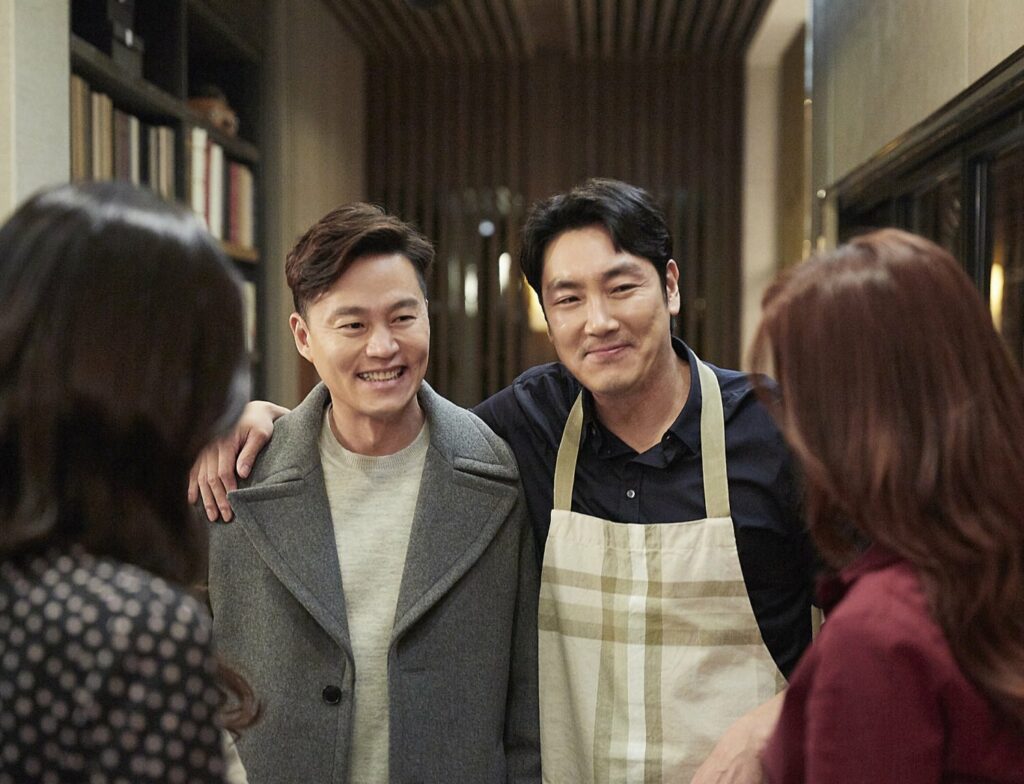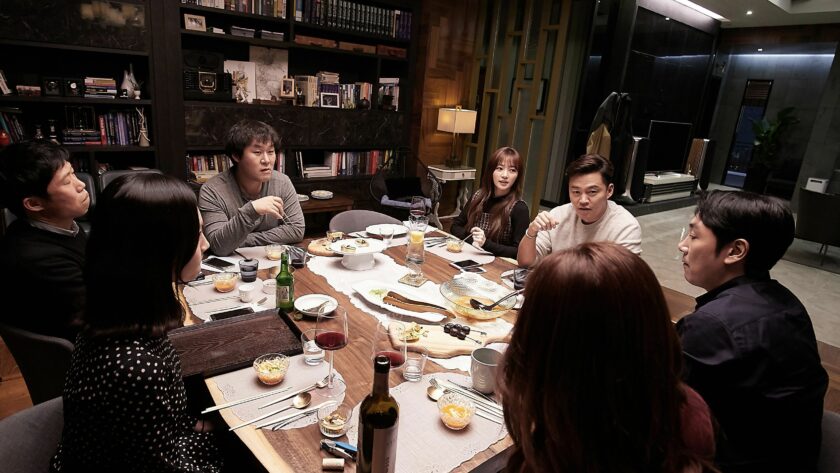London Korean Film Festival returns for its 15th edition. From new releases to hits from renowned Korean directors, the FilmSoc Blog reviews a selection of films showing at this season’s festival.
Palin Supradit reviews Korean drama Intimate Strangers, exploring the complexities of human relationships.
In the post-Parasite era, many moviegoers have now overcome “the-one-inch-tall barrier of subtitles”. Korean entertainment has boomed, not just in Asia, but globally. Coupling new perspectives of cultures and beliefs with layers of emotions and interpersonal conflicts, Korean movies occupy a dimension in the film industry that English language filmmakers cannot fill. Intimate Strangers does not just meet the standard of Korean movies, but it dives deeper into the nature of human morality. Adapted from an Italian comedy-drama, the director of Intimate Strangers, Lee Jae-Gyu, explores whether keeping secrets makes friendships stronger or tears them apart.
A dinner party with old friends starts out as a nostalgic reunion until the party host, Ye-jin (Kim Ji-soo), proposes a game for the group to play: everyone has to leave their phones on the dinner table. Once a text or call arrives, they have no choice but to turn on the speaker or read it out loud. Despite a light-hearted opening, the movie slowly builds tensions between characters. A buoyant gathering of intimate friends quickly descends into a leaden kerfuffle of secretive strangers. As we reach the second act, each notification increases the palpable chaos as the characters desperately struggles to hide their secrets. The seven characters find themselves trapped in an ever-tangling human knot, encumbered by their little devices.
Surprisingly, a movie set within one night at a single dinner table proves itself to be very emotionally gripping. Never at rest, the camera switches to capture seven people at the dinner table as the dialogue continues, effectively making you one of the guests playing the game, hiding secrets and avoiding tensions. The camera perfectly captures the reactions of the characters, allowing you to see inside the emotions of the right person at the right time. Lee Jae-Gyu implements several long takes to suit this dialogue-led movie, yet the actors maintain superb performances throughout the scenes. Through their body language and facial expressions, the awkwardness in the dining room feels heavy, spilling beyond the screen to your own position as a viewer. Yum Jung-ah is particularly compelling as Soo-Hyun, a wife in need of a husband’s compassion, slowly escalating her emotions in line with the conflict.

The screenwriter, Bae Se-Young, proves himself a master of conversational dialogue, expertly mimicking dinner-table talk to the point where it sounds unscripted. The audience gets to know each character by listening to their opposing perspectives in a smooth-flowing, casual conversation. The film occasionally plays with dramatic irony, revealing secrets to the audience prematurely and shifting the focus of their anticipation to the characters’ reactions to the eventual reveal. Although some of the secrets tend on the slightly overdramatic side, overall, the screenwriting portrays a dynamic whirlwind of people. Life is messy, and Bae Se-Young makes this clear to the audience throughout.
Intimate Strangers perfectly represents the messiness of human relationships, revealing core issues in marriage, friendship and adult life. The complexity of emotions portrayed in the film fulfils the expectations audiences have of Korean movies.




